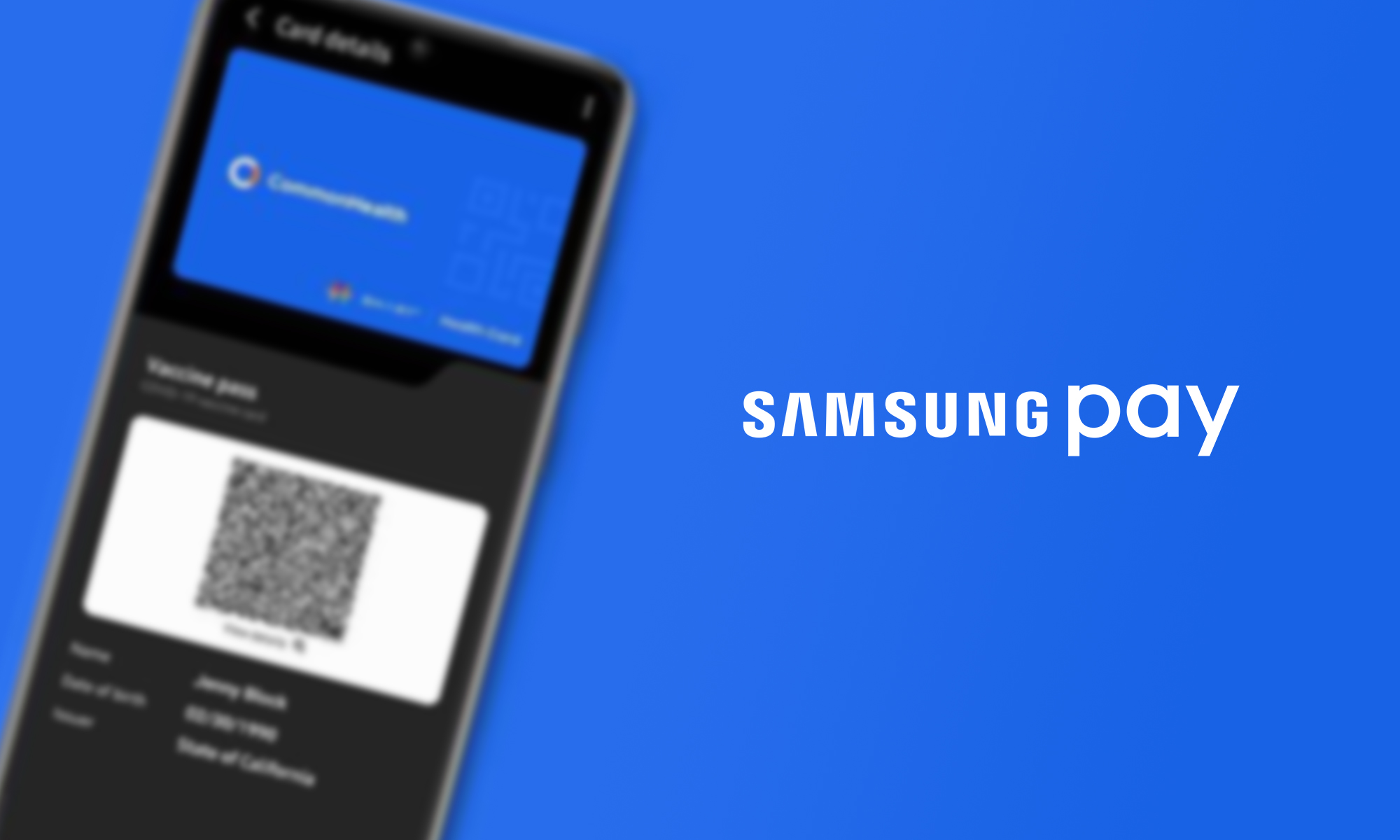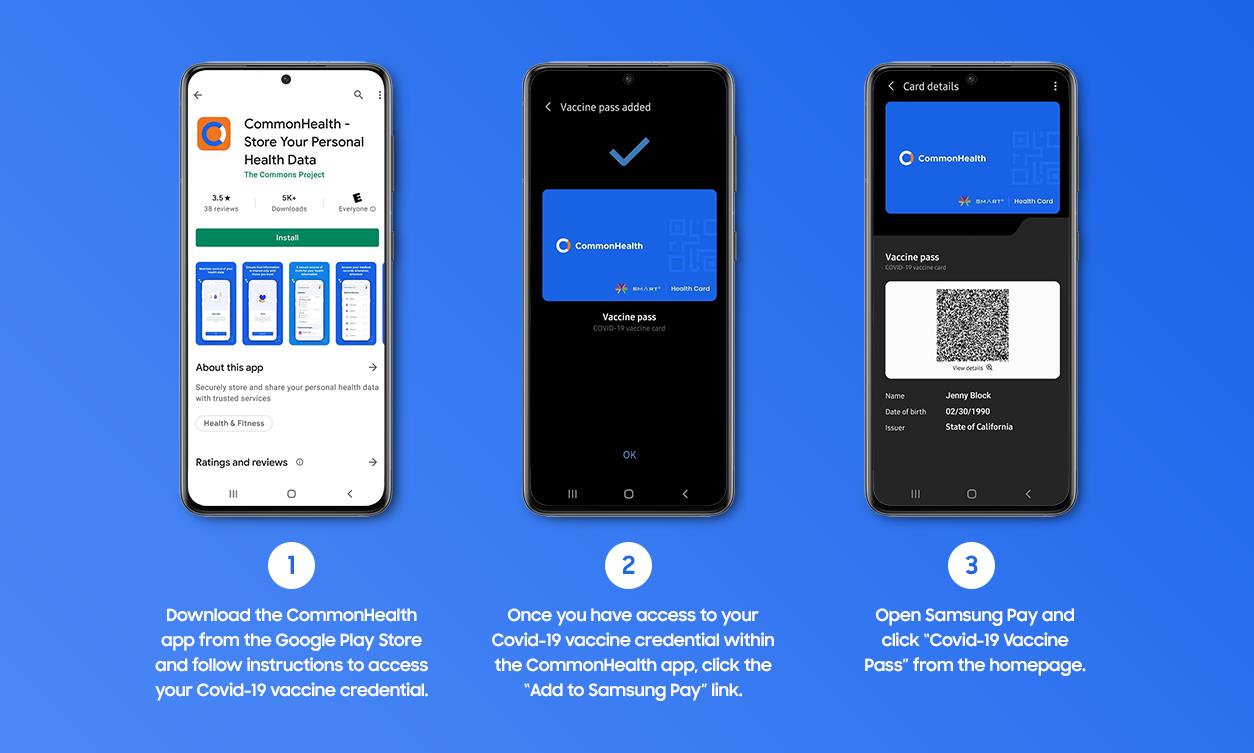News
Samsung Pay Introduces Support For Digital COVID-19 Vaccination Cards
The feature is currently available only in the United States.

In 2021, digital COVID-19 vaccination cards have become reality for many people around the world who decided to take the vaccine in order to better protect themselves and their loved ones from the deadly infectious disease that brought the world to a stand still last year.
Now Samsung, in partnership with The Commons Project Foundation, a non-profit public trust established to build and operate digital platforms and services for the common good, has announced that Samsung Pay users can use the mobile payment and digital wallet service to store digital versions of their COVID-19 vaccination cards.
“As more and more consumers use their Samsung devices as a digital wallet, it is a natural extension to make Covid-19 vaccination records more easily accessible,” explains Rob White, Sr. Director of Product for Samsung Pay at Samsung Electronics America, in the official announcement. “We are proud to partner with The Commons Project Foundation on this important initiative and to help make life easier” he added.

Here’s what you need to do to add your own COVID-19 vaccination card to Samsung Pay:
- Open the Google Play Store app and download the CommonHealth app to your device.
- Follow the instructions provided by the CommonHealth app to access your COVID-19 vaccine information.
- You can then tap the Add to Samsung Pay link to transfer your COVID-19 vaccine information to Samsung Pay.
- Launch the Samsung Pay app and tap the COVID-19 Vaccine Pass on the homepage.
At the moment, this handy feature is available only in the United States, and we have no information on global availability.
Also Read: Mastercard Plans To Say Goodbye To Magnetic Stripes In 2024
Of course, Samsung can’t force any business, educational institution, or other places to actually accept digital vaccination cards stored in Samsung Pay, but we predict that the willingness to accept this form of COVID-19 certification will only increase as more similar solutions become available.
News
Alienware Just Announced Six New Gaming Monitors
The new models include three QD-OLED and three budget-friendly QHD options, expanding the company’s lineup for all gamers.

Alienware has just updated its gaming monitor lineup with six new additions, including the highly anticipated Alienware 27 4K QD-OLED Monitor. The latest wave of releases is set to reach more gamers than ever, offering high-end QD-OLED displays alongside more budget-friendly options.
The latest displays clearly show that the company is doubling down on QD-OLED with three new models sporting the technology. A redesigned Alienware 34 Ultra-Wide QD-OLED Monitor is also making a return, further refining what is already a fan-favorite display.
A Unified Design: The AW30 Aesthetic
All six monitors feature Alienware’s new AW30 design language, first introduced at CES. The AW30 aesthetic brings a futuristic, minimalist look that unites the entire lineup under a cohesive visual identity.
Pushing QD-OLED Even Further
The refreshed Alienware 34 Ultra-Wide QD-OLED Monitor (AW3425DW) builds on its predecessor’s success with a 240Hz refresh rate (up from 175Hz) and HDMI 2.1 FRL support. It also gains G-SYNC Compatible certification alongside AMD FreeSync Premium Pro and VESA AdaptiveSync, ensuring ultra-smooth performance. With a WQHD (3440×1440) resolution and an 1800R curve, this display enhances immersion for both gaming and cinematic experiences.
For those who crave speed, the Alienware 27 280Hz QD-OLED Monitor (AW2725D) pairs a high refresh rate with QHD resolution, balancing sharp visuals with ultra-smooth gameplay. Meanwhile, the Alienware 27 4K QD-OLED Monitor (AW2725Q) delivers stunning clarity with an industry-leading pixel density of 166 PPI, making it the sharpest OLED or QD-OLED monitor available.
Also Read: Infinite Reality Acquires Napster In $207 Million Deal
Worried about OLED burn-in? Alienware’s entire QD-OLED lineup comes with a three-year limited warranty covering burn-in concerns, offering peace of mind for gamers investing in these high-end displays.
Bringing QHD To A Wider Audience
Alongside QD-OLED, Alienware is also releasing three new QHD gaming monitors aimed at more price-conscious gamers. The Alienware 34 Gaming Monitor (AW3425DWM), Alienware 32 Gaming Monitor (AW3225DM), and Alienware 27 Gaming Monitor (AW2725DM) provide a range of sizes and formats to suit different preferences:
- The Alienware 34 Gaming Monitor (AW3425DWM): An ultrawide (WQHD) option for a panoramic, immersive experience.
- The Alienware 32 Gaming Monitor (AW3225DM): A standard 16:9 panel for a traditional but expansive desktop setup.
- The Alienware 27 Gaming Monitor (AW2725DM): A 27” display offering the same performance in a more compact form factor.
All three gaming monitors feature a fast 180 Hz refresh rate, a 1ms gray-to-gray response time, and support for NVIDIA G-SYNC, AMD FreeSync, and VESA AdaptiveSync to eliminate screen tearing. Additionally, with 95% DCI-P3 color coverage and VESA DisplayHDR400 certification, these displays deliver vibrant colors and high dynamic range for lifelike visuals.


























